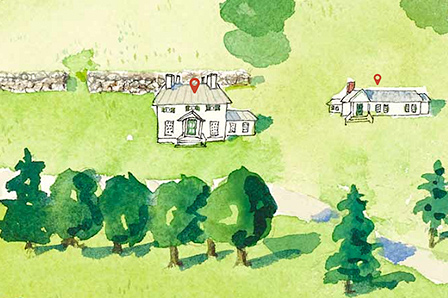Completed in April, 2011, the SUMMER KITCHEN DISCOVERY CENTER focuses on the “back story” of John Jay’s Bedford House, highlighting the lives of the servants and slaves who contributed to the operation of the house and farm. Interpretation also addresses the anti-slavery sentiments and activism of the Jay family.
Founding Father John Jay, who resided in the house from 1801-1829, owned slaves. But believing slavery to be morally wrong, John Jay manumitted many of his slaves and while serving as Governor of New York State, he signed into law an Act for the Gradual Abolition of Slavery. William Jay, who took ownership of the Homestead following his father’s death, was an avid abolitionist.
The completely furnished kitchen provides visitors a sense of the daily routine of the servants and slaves who served the Jay family. Small vignettes throughout the room focus on the activities that filled the daily life of the servants and slaves. One vignette emphasizes the labor involved in the day long, once-a-week task of laundry day. Another demonstrates the different methods and materials used in candle making and soap making. A third vignette calls attention to the fact that the kitchen would often serve as the living quarters for some of the slaves. Furnished entirely with reproduction furniture and objects, the kitchen is the one room in the historic house where visitors may immerse themselves in the early 19th century experience, learning through hands-on interaction with the objects and space. Special programs will allow visitors the opportunity to further immerse themselves in the space by participating in the activities of preparing food and making candles using the 19th century utensils, materials, and methods.
The Summer Kitchen is an experience separate from the regular historic house tour, adding to a growing list of things to do during a visit to the Homestead. The Summer Kitchen will be open on a regular schedule, and by appointment.

